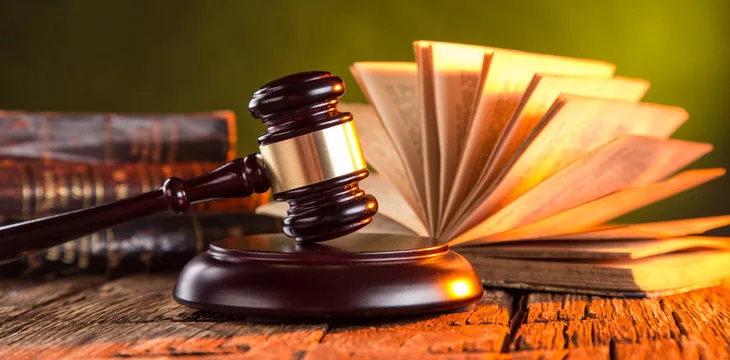|
Getting your Trinity Audio player ready...
|
A United States federal judge has granted a summary judgment in favor of the Securities and Exchange Commission (SEC) over claims that Terraform Labs and its former CEO, Do Kwon, offered and sold unregistered securities.
Judge Jed Rakoff of the U.S. District Court for the Southern District of New York granted the SEC’s summary judgment motion over claims that Terraform Labs and Kwon offered and sold unregistered securities while siding with the defendants “on the claims involving offering and effecting transactions in security-based swaps.”
The decision in favor of the SEC related to the unregistered sale of LUNA, TerraUSD (UST), and Mirror (MIR). In the court order filed on December 28, Judge Rakoff stated that “there is no genuine dispute that UST, LUNA, wLUNA, and MIR are securities because they are investment contracts.”
Judge Rakoff also denied motions from both sides for a summary judgment on fraud claims, meaning a jury trial on the remaining claims will proceed on January 29.
The SEC filed suit against Do Kwon and Terraform in February 2023, accusing the company and its founder of a “multi-billion dollar crypto asset securities fraud” and of “offering and selling an inter-connected suite of crypto asset securities, many in unregistered transactions.”
The case emerged from the May 2022 collapse of Terraform Labs, when its UST algorithmic stablecoin lost its peg to the U.S. dollar, leading to the printing of more of the company’s native token, LUNA, in an attempt to prop up UST. This eventually led to a crash in LUNA, and the whole Terra ecosystem spiraled, with an estimated $60 billion being wiped out of the digital asset space.
Terra’s failed Ripple gambit
A few months after the SEC accused Terraform Labs and its founder of violating securities laws, back in February 2023, the stakes of the lawsuit were suddenly raised when Judge Analisa Torres of the U.S. District Court for the Southern District of New York, the presiding Judge in another SEC case against Ripple Labs, ruled on summary judgment motions from both parties.
The SEC sued Ripple Labs in December 2020, along with CEO Bradley Garlinghouse and Executive Chairman Christian Larsen, accusing them of engaging in illegal securities offerings from 2013 up to the present based on the sale of the firm’s digital asset and native token XRP.
In a partial victory for each side, Torres ruled that institutional sales of XRP amounted to illegal securities based on the Howey test but that “programmatic sales “—such as through exchanges in blind transactions—did not.
The Howey test is used to determine whether an asset can be classified as a security, which is the case if it is an investment of money in a common enterprise, with an expectation of profits solely from the efforts of others. In other words, what can also be defined as an “investment contract.”
Shortly after Torres’ ruling, the SEC announced its intention to appeal (which is pending). However, Terraform Labs attempted to use the Ripple decision to have its own SEC case dismissed.
Judge Rakoff was not amenable, stating in a ruling two months after the Ripple decision that he rejected the court’s approach as inconsistent with the Howey Test and suggested that secondary sales can amount to illegal securities transactions.
Terraform filed further supporting arguments in favor of its dismissal motion, but by October 27, the SEC felt confident enough in its position to file a motion for summary judgment, saying it sees no need for a lengthy trial as “the evidence that establishes Defendants’ violations is clear, undisputed, and overwhelming.”
As of December 28, Judge Rakoff has again affirmed that the sales of UST, LUNA, wLUNA, and MIR amounted to “investment contracts” and, thus, unregistered securities sales. Terraform Labs and Kwon can claim a small amount of solace from the court’s decision on security-based swaps, but they will have to nervously wait for a jury to decide on the fraud-related charges.
Watch Nouriel Roubini: Bitcoin must embrace the rule of law

 03-01-2026
03-01-2026 




